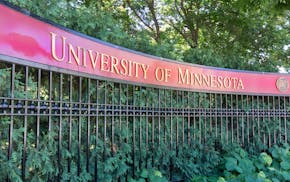Burnsville city officials are moving to identify the rising number of foreclosed homes to ensure they are properly maintained -- with costs being assessed to the banks and other mortgage holders if the city is forced to maintain the vacant properties.
In two weeks, the City Council will consider adopting an ordinance that would require vacant homes to be registered with the city, to be maintained while vacant, and to be reinspected prior to occupancy, said Jenni Faulkner, Burnsville community development director.
"We want to make sure our neighborhoods are maintained and places where people want to live," Faulkner said. "Certainly we don't want them to become problems, which is why we are looking at this."
While campaigning this fall, Council Member Dan Gustafson said he discovered that nearly every neighborhood has homes in foreclosure.
"This hits every economic level of Burnsville, from the first-time home buyer who reached for the American dream to the people who have been in their homes for many years and lost their jobs," Gustafson said this week from Florida, where he and other city leaders from around the nation are discussing what to do with foreclosed properties.
"The concern with vacant homes is that blight could set in because they're not being maintained," he said. "The blight just lowers our property values and we're already struggling with that nationwide anyway."
In Burnsville, there were 258 sheriff's sales on foreclosed homes through Oct. 31 this year, out of 1,821 sheriff's sales in all of Dakota County. Last year, Burnsville reported 220 foreclosures out of about 15,000 homes in the city.
The national housing crisis finds its reflection in Burnsville in yet another troubling indicator: Through the end of October, there were 382 homes in which owners were in default by at least five months, and mortgage companies had filed legal notices that foreclosures were beginning. Not all would necessarily end in sheriff's sales, however.
The city isn't automatically learning about the homes that have been foreclosed on and are sitting vacant, said Mayor Elizabeth Kautz. On Thursday, she asked that residents keep an eye out and contact city staff members if they see one going unattended in their neighborhoods.
The city already has an ordinance that requires property be maintained; if it's not, the city will do it and bill the owner, she said. The costs can be added to the taxes on that property and those must be paid, at the latest, when the property is sold, Kautz said.
"It's a way for us to maintain the quality of our neighborhoods," she said of the strategy.
Public safety is "a huge concern" when it comes to vacant homes, Gustafson said.
"When you look at a house that's not being maintained and the lawns are overgrown and the papers in the news boxes are overflowing, that's a sign to thieves that, 'Hey, there's a vacant house here,'" he said. "Of course, there's always the chance that thieves could come in and steal the copper in the houses and could flood the homes and actually cause explosions."
So on Dec. 1 the Burnsville City Council is set to consider an ordinance much like one that St. Paul and a growing number of U.S. cities have in place.
The owners of the vacant homes, such as banks, would be required to pay a small fee and register with the city, which will keep a database of vacant homes. Utilities will need to be shut off unless utility bills are paid. An inspection before occupancy will check not only for safety problems, but also maintenance deficiencies ranging from rotting siding to broken windows to weedy lawns, Faulkner said.
"This action shows that the city is concerned about the health of its housing stock and is taking appropriate action," said Mark Ulfers, executive director of the Dakota County Community Development Agency.
Kautz said the city will also continue and strengthen its programs to help homeowners avoid foreclosure.
Joy Powell • 952-882-9017

Teen suspect in Nudieland mass shooting arrested on murder, assault charges
'Human error' behind Robbinsdale shelter-in-place alert that was mistakenly sent countywide

Going to Wolves or Twins tonight? How to get there (and maybe avoid traffic).
Focusing on bringing football film into frame

